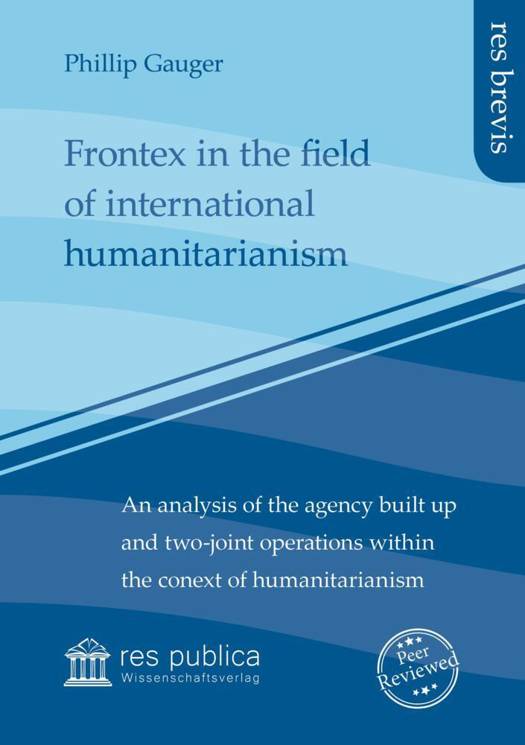
- Retrait gratuit dans votre magasin Club
- 7.000.000 titres dans notre catalogue
- Payer en toute sécurité
- Toujours un magasin près de chez vous
- Retrait gratuit dans votre magasin Club
- 7.000.0000 titres dans notre catalogue
- Payer en toute sécurité
- Toujours un magasin près de chez vous
Frontex in the field of international humanitarianism
An analysis of the agency built up and two-joint operations within the conextof humanitarianism
Phillip Gauger
21,95 €
+ 43 points
Description
With growing tendency towards political globalisation, the EU Member States are not only confronted with more interconnectivity between the States themselves, but also with States outside of the EU, which leads to new transnational challenges. Regarding the uncontrolled migration towards the EU, the Member States decided to establish the Agency Frontex, which should help them to better control migration at the land and sea borders. Since the establishment of Frontex, the Agency experienced an immense increase in monetary and human capital. At the same time Frontex was accused of several human rights violations and the increasing securitization and militarization of the borders. This progression resonated especially bad with Human-Rights- and Pro-Migrants-Groups.This paper will analyse the historical background and development of the Agency and examine the methods, which it applies in order to conduct and coordinate the joint operations. The focus will also lie on the linguistic framework, which is established through the methods used by Frontex. Further it will be analysed, to which degree the Agency and the Member States are accountable for the human rights violations, which occurred during the joint operations and how exactly the increasing securitization and militarization of the borders is compatible with the growing humanitarian approach within the Agency.
Spécifications
Parties prenantes
- Auteur(s) :
- Editeur:
Contenu
- Nombre de pages :
- 64
- Langue:
- Anglais
- Collection :
- Tome:
- n° 4
Caractéristiques
- EAN:
- 9783959680837
- Format:
- Livre broché
- Dimensions :
- 147 mm x 5 mm
- Poids :
- 148 g

Les avis
Nous publions uniquement les avis qui respectent les conditions requises. Consultez nos conditions pour les avis.






